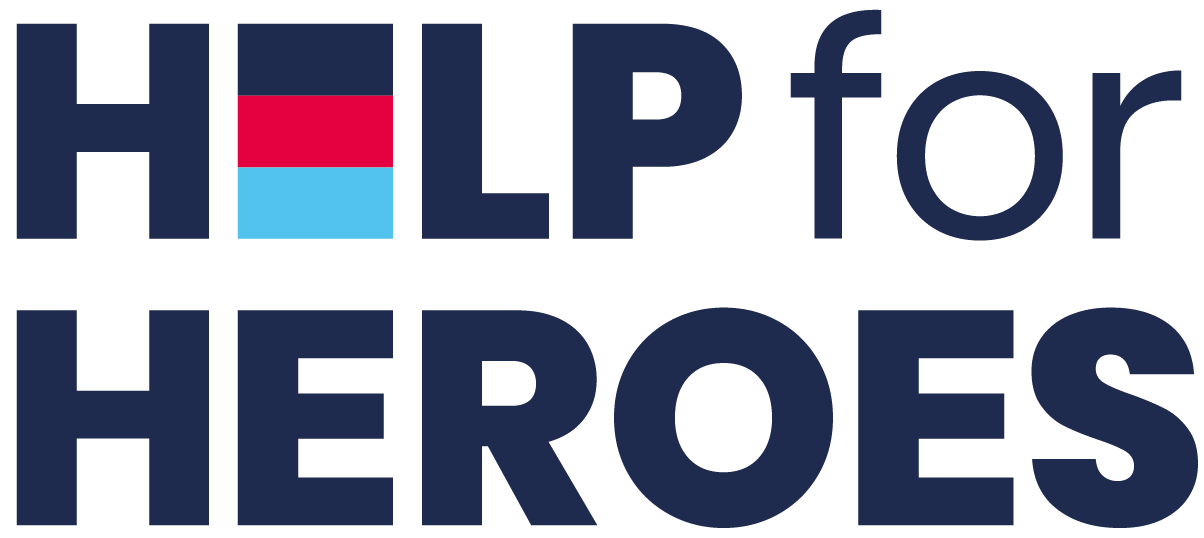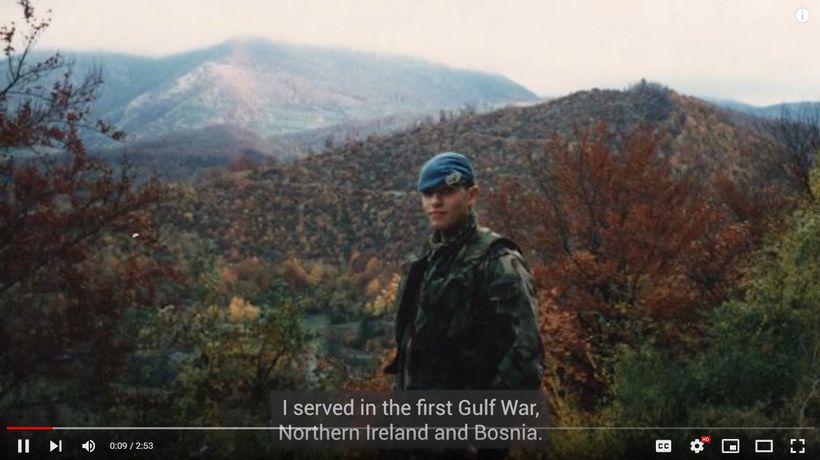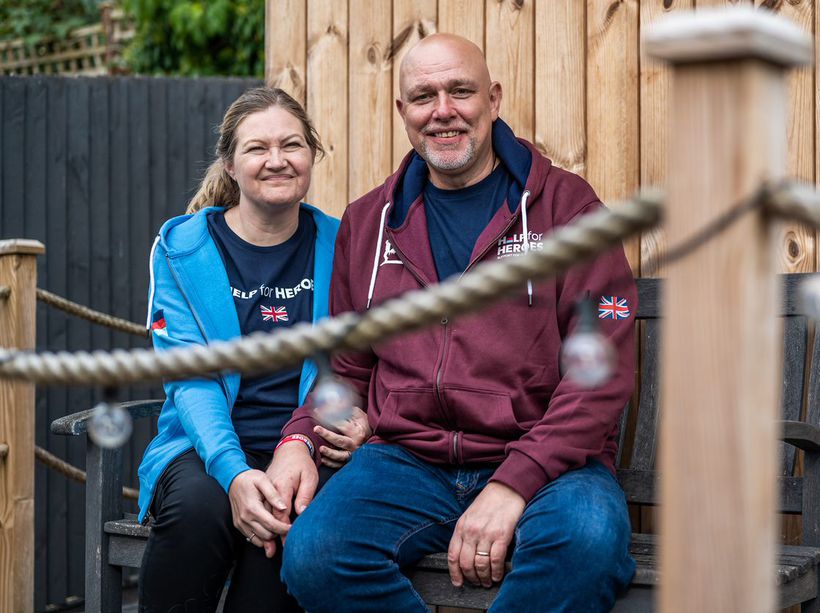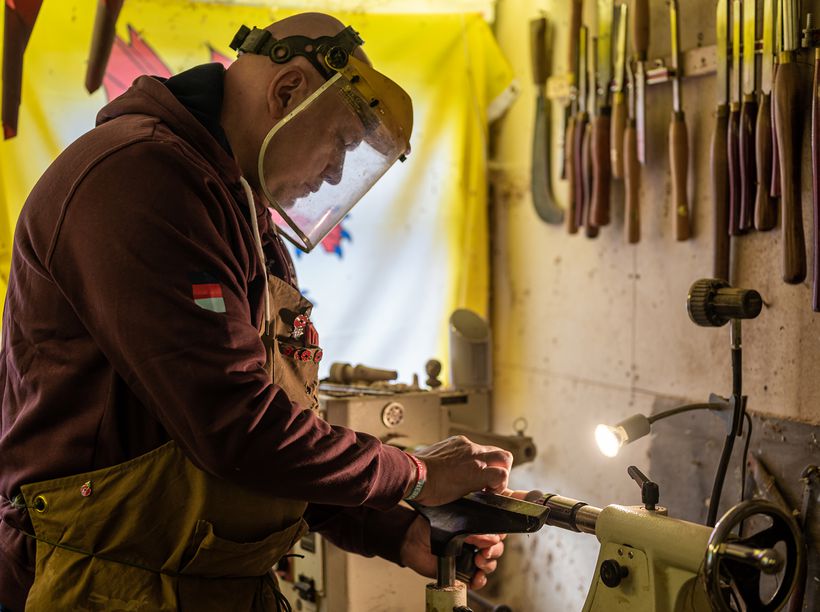Updated on
Greg served in the First Gulf War, Bosnia and Northern Ireland. He then spent 25 years in frontline policing before he was diagnosed with post-traumatic stress disorder (PTSD).
“When we were in the Gulf, British vehicles were accidently targeted by American aircraft. To stop that happening again, they gave us red torches to put on our backs. That made me feel like a target. As a police officer, you’re very visible with the uniform and the car, but you’re often on your own. That feeling of vulnerability when I was in the police and feeling like a target in the Gulf War aged 19 started to mesh together in my mind.
The tools Help for Heroes Recovery College courses gave me allow me to spend time with my family in the here and now. What more can I ask for?”
Veteran
“When I was diagnosed with PTSD in 2018, the anxiety and heightened awareness came back and hit me like a freight train.
“Walking to the shops, I’m thinking “Is there a sniper out there looking for me? Why is that wire hanging down? That bin wasn’t there yesterday.” That was programmed into my brain when I was a soldier in Northern Ireland. Memories from traumatic events can come back decades after service.
“While collecting the girls from school it would take all my self-control not to dive for cover. I'd come back sweating profusely. The anxiety was deep within me.
“I sat on the sofa for days on end. Drained, fatigued, and scared witless because of my memories.”
Totally adrift
“Isolation as a veteran is quite a bizarre feeling. I'm really blessed with amazing friends and a phenomenal family. But you can be among all these people who you love, and who love you, and feel totally adrift. They don’t understand what you’ve been through. Trying to be a good husband and good dad, you want to protect your loved ones. You don't want to share all that graphic detail.
“Plonk me in with a group of veterans, and my feelings of isolation disappear. That's nothing against my civilian friends and family. With other veterans, even if you've never met them before, you immediately feel at ease because they're going through exactly the same as you. And that’s the beauty of the charity, you meet all these people who become firm friends.”
Tools to get your life back on track
“In 2020 Help for Heroes offered me a list of courses I could do online. I asked for all of them.
“I can remember the moment my recovery started. I was sat in my kitchen on my laptop. It was an epiphany, a lightbulb moment when I realised what I needed to do. The courses gave me the tools to get my life back on track.
“I was so grateful to be given a place on the Pathfinder course, which was in person with other veterans. The course focuses on the future and how you – and no one else – can grab it and make it yours.
“It gave me the ability to reclaim my life from PTSD. Because PTSD can be an all-encompassing illness. It can take everything from you, and can give you things like skin conditions, IBS, and nightmares. The Pathfinder course helps with all that. It's so powerful.”
Being there for my family again
“It might be the veteran who has PTSD, but it’s their family who live with it. When I was finally able to tell my family about my PTSD, their lives suddenly made sense. It was like, 'Oh, this is why Dad, this is why hubby, is acting like this’. It wasn’t easy, but once I’d reached out for help, life for everybody in the household improved.
“Before working with the Recovery College I wasn't in the here and now with my family. I would be there in person, but my mind would be elsewhere. But now if we're on a beach together, I'm on the beach with them. I'm not having flashbacks or intrusive thoughts. If those thoughts try to trickle their way into my mind, I'm able to ground myself and bring myself back to the here and now, and enjoy my family time. That’s thanks to tools the charity taught me.
“Without the charity, I wouldn't have the confidence to go out and work. My days are full, and they’re mine again. After I’ve taken the kids to school and finished the housework, I do my gardening job, which I love. I also have a wood turning business and a bush craft business.”
Ask for help – you’ll be believed
“My message to any veteran who is suffering from isolation is to ask for help. It can seem really tough to ask for help. But that hand is there and all you have to do is grasp it. As soon as you do, you're welcomed in. You're believed. And that's a huge thing – to be believed and not judged.
“I love Help for Heroes because it has given me my life back. And that means my wife has her husband back, my kids have their Dad back, and my friends and my brothers have their Greg back.”








